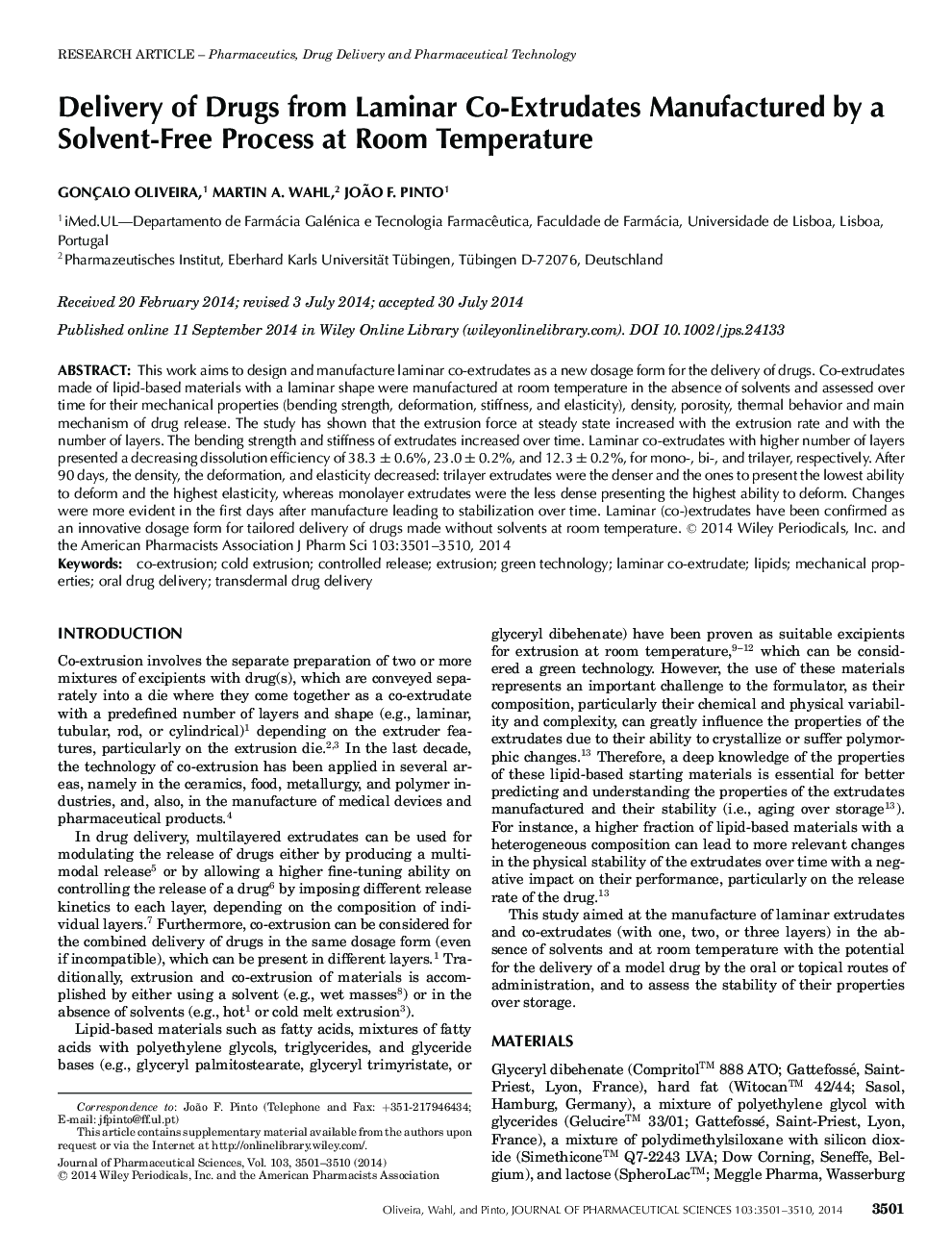| Article ID | Journal | Published Year | Pages | File Type |
|---|---|---|---|---|
| 10162256 | Journal of Pharmaceutical Sciences | 2014 | 10 Pages |
Abstract
This work aims to design and manufacture laminar co-extrudates as a new dosage form for the delivery of drugs. Co-extrudates made of lipid-based materials with a laminar shape were manufactured at room temperature in the absence of solvents and assessed over time for their mechanical properties (bending strength, deformation, stiffness, and elasticity), density, porosity, thermal behavior and main mechanism of drug release. The study has shown that the extrusion force at steady state increased with the extrusion rate and with the number of layers. The bending strength and stiffness of extrudates increased over time. Laminar co-extrudates with higher number of layers presented a decreasing dissolution efficiency of 38.3 ± 0.6%, 23.0 ± 0.2%, and 12.3 ± 0.2%, for mono-, bi-, and trilayer, respectively. After 90 days, the density, the deformation, and elasticity decreased: trilayer extrudates were the denser and the ones to present the lowest ability to deform and the highest elasticity, whereas monolayer extrudates were the less dense presenting the highest ability to deform. Changes were more evident in the first days after manufacture leading to stabilization over time. Laminar (co-)extrudates have been confirmed as an innovative dosage form for tailored delivery of drugs made without solvents at room temperature. © 2014 Wiley Periodicals, Inc. and the American Pharmacists Association J Pharm Sci 103:3501-3510, 2014
Keywords
Related Topics
Health Sciences
Pharmacology, Toxicology and Pharmaceutical Science
Drug Discovery
Authors
Gonçalo Oliveira, Martin A. Wahl, JoãO. F. Pinto,
